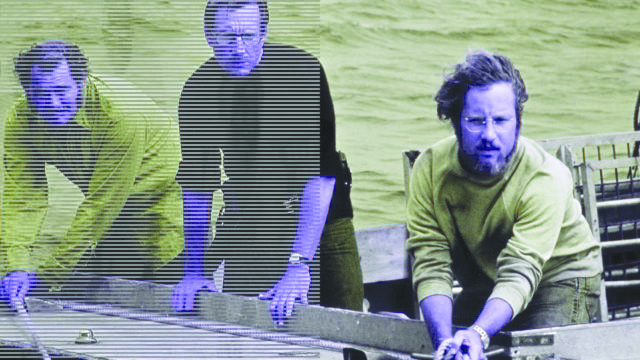
In 1975, a movie about a killer shark terrorizing the waters surrounding a New England island hit theaters. That may not sound like much, but it was a massive success. Massive isn’t even the word for it: The movie broke box office records, had people queuing up around the block to see it, even hooked ’em so deep they had no choice but to see it again and again. It was among the first movies to be mass-marketed through toys and T-shirts and plastic cups and you name it. It changed how studios made movies. It changed how people went to the movies and what they expected from them. It even invented a new type of movie: The blockbuster. After June 20, 1975, the movies would never be the same.
But you probably know all that. You might even know how a 27-year-old Steven Spielberg, with only one feature under his belt, staked his whole career on a movie about a killer shark where the audience didn’t see the shark for the first hour of the film; or, how the shark was nicknamed “Bruce”—supposedly after Spielberg’s lawyer—and how it sank to the bottom of the Atlantic every time they needed it to “act.” You probably also know that Robert Shaw largely rewrote Quint’s speech about the sinking of the USS Indianapolis and that Rob Schneider ad-libbed the line, “You’re going to need a bigger boat.”
None of this feels like trivia. Hell, it doesn’t even feel like movie lore. When we’re talking about Jaws, it feels like we’re discussing the very fabric of American culture. Lines from the movie are so ubiquitous that I suspect some don’t even know they’re quoting a movie. Ditto for John William’s score: two unrelenting notes that can still raise the hairs on the back of your neck. Kids who haven’t even seen the movie can imitate that music because they’ve heard echoes of it in some of the most benign cartoons you can imagine. I would wager that today, the average person knows more about the shark in Jaws than they do the Easter bunny.
So, with all that in mind, what is there left to say about Jaws? Plenty. Few movies are this fun to rewatch, this interesting to discuss. I remember when my father showed it to me. It scared me so much I still treat open water with trepidation. Someday, when my nephew is old enough, and my sister isn’t looking, I’ll show her son Jaws. It’ll probably scare the pants off him, but it might begin a long and wonderful love affair with the movie. Maybe even with the movies. It’s that good.
Jaws is a movie people love to share, and not just for the trivia, the lore, the scares, but because the characters are so richly drawn, the setting so authentic, and the expertise with which the filmmakers guide the proceedings so convincing. “For Spielberg, the movie was a launching pad for the most extraordinary directorial career in modern movie history,” Roger Ebert wrote. It almost makes you wonder: Why didn’t Jaws, indeed any Spielberg film, receive Ebert’s patented “Interruptus” treatment in the program’s 47-year history?
Well, that ends now. From April 6-9, the Conference on World Affairs returns to in-person participation, Ebert Interruptus returns to Macky Auditorium, and film critic and author Josh Larsen returns as host. Yes, the movie is Jaws, and it’s going to be a blast. Yours truly will be manning the Blu-ray player, and fellow critic Walter Chaw will be joining us on April 7 for additional insights into a movie near and dear to his heart. Sessions start daily at 3 p.m. and are free and open to the public.














